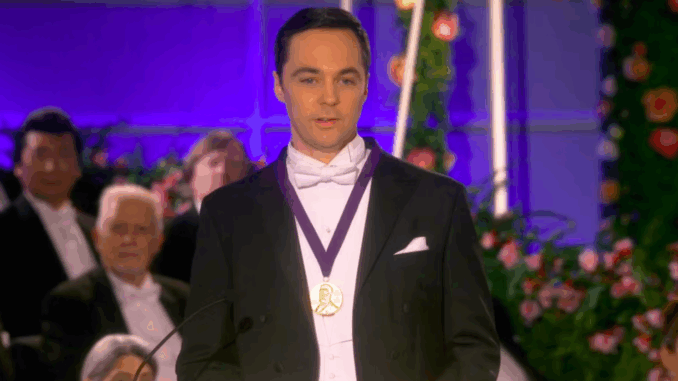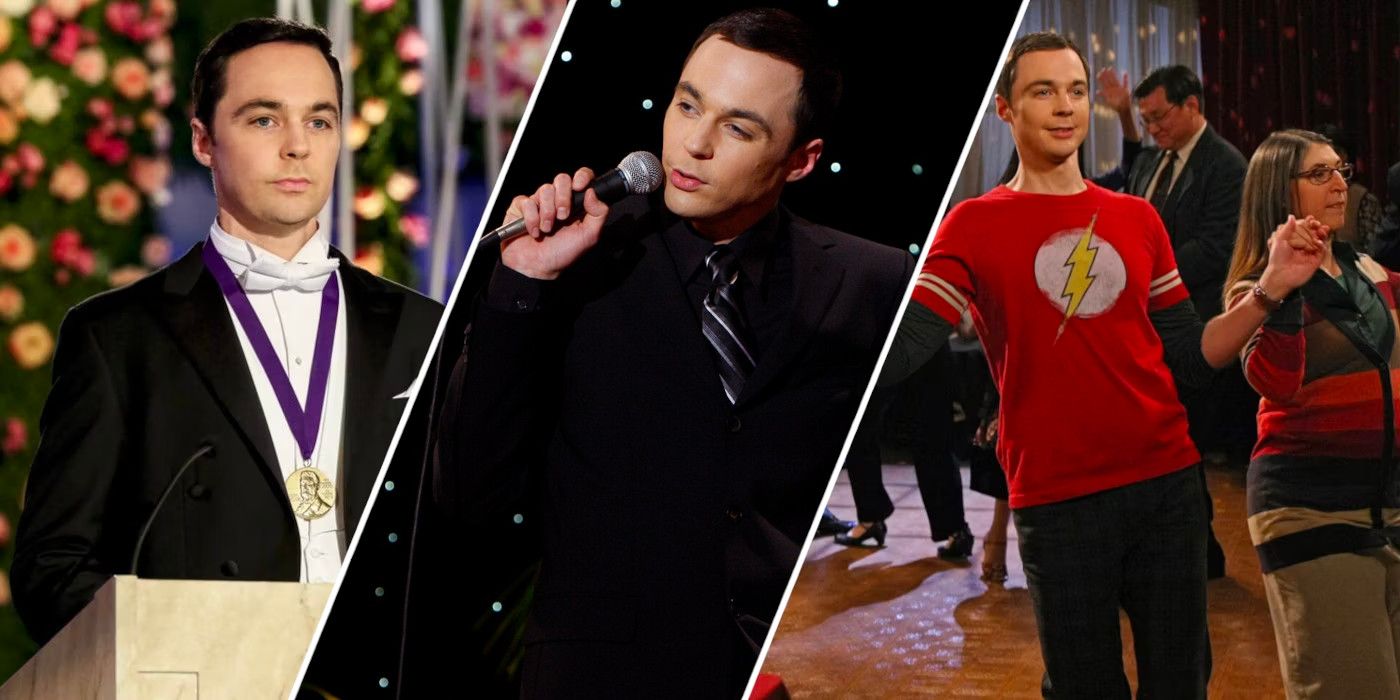
For twelve seasons, The Big Bang Theory invited viewers into the peculiar, brilliant, and often frustrating world of Sheldon Cooper. Audiences watched him grow from a socially oblivious physicist who couldn’t handle a simple handshake to someone who—against all odds—delivered one of the most moving speeches in sitcom history. And while the series finale marked a major scientific milestone with Sheldon winning the Nobel Prize, Jim Parsons says that wasn’t the real point of it all.
It was never about the science. It was about the empathy.
The Moment That Changed Everything
In the final episode of The Big Bang Theory, Sheldon and Amy receive the Nobel Prize in Physics. For most fans, it was the ultimate recognition of everything Sheldon had spent his life working toward. But the magic of that moment wasn’t just the applause in Stockholm or the camera flashes. It came during his acceptance speech—when Sheldon, for the first time, turned the spotlight away from himself.
As showrunner Steve Molaro said in Jessica Radloff’s definitive behind-the-scenes book, The Big Bang Theory: The Definitive, Inside Story of the Epic Hit Series, “He always needed the world to revolve around him. That night, it didn’t.”
Instead of basking in solo glory, Sheldon paused. He took a deep breath. And then he honored the people who stood by him all those years—Leonard, Penny, Amy, Howard, Bernadette, and Raj. One by one, he called them out by name, thanking them for their patience, their friendship, and their love.
It was the speech no one expected from the Sheldon we met in season one. And for Jim Parsons, it was everything.
Jim Parsons: “It Was Everything I Ever Wanted for Him”
According to Parsons, reading that speech for the first time moved him to tears.
“It was everything I ever wanted for him,” he said. “It wasn’t about the Nobel. It was about becoming the kind of person who could give that speech.”
Throughout the series, Sheldon had been portrayed as a man whose intellect vastly outpaced his emotional intelligence. He needed charts to understand social cues. He couldn’t tolerate change, crowds, or even physical touch. But beneath the layers of sarcasm and superiority was a character slowly learning to care for others in his own unique way.
The beauty of Sheldon’s arc, and what made him such a powerful character, wasn’t found in a sudden breakthrough. As The Big Bang Theory co-creator Chuck Lorre put it, “The comedy worked because Sheldon never changed overnight. But he did change.”
That change—subtle, believable, and deeply human—is what makes the finale so powerful in retrospect.
A Twelve-Season Journey to One Unsuspecting Moment

When The Big Bang Theory began in 2007, Sheldon’s personality was one of the show’s most defining and divisive elements. He was brilliant, yes—but also maddeningly difficult. He rejected affection, belittled his friends, and seemed incapable of seeing the world from another point of view.
But over the course of 279 episodes, audiences saw glimpses of something different. It came in moments like Sheldon baking Amy cookies after a fight, or sacrificing his “spot” for a friend, or proposing not because it made logical sense, but because it felt right. Slowly, Sheldon learned empathy—not through grand gestures, but through everyday moments.
By the time the finale arrived, it wasn’t just that Sheldon won the Nobel Prize—it was that he had become the kind of man who could win it, and still recognize the people who helped him along the way.
For long-time viewers, this evolution felt like a reward not just for Sheldon, but for themselves.
Why the Finale Resonates Years Later
What made that final speech so poignant is how unexpected it was—and yet how earned. For fans who had followed Sheldon’s journey from day one, seeing him stand on stage, vulnerable and sincere, was more meaningful than any medal or title. It was the culmination of years of character growth, handled with patience and care by the writers and cast.
The applause that night wasn’t just for Sheldon Cooper, Nobel Laureate. It was for Sheldon Cooper, the friend who finally said thank you.
It’s rare for sitcom characters to evolve so meaningfully. Most stay locked in place, frozen in the quirks and patterns that make them funny. But The Big Bang Theory dared to let Sheldon grow. Not so much that he became someone new—but enough that he became someone better.
As Chuck Lorre noted, “He didn’t change overnight. But he did change.”
Sheldon Cooper: A Legacy of Growth
In the years since the show ended, Sheldon remains one of the most iconic sitcom characters of all time. But perhaps what makes his legacy so enduring isn’t his genius, his catchphrases, or even his Nobel Prize. It’s that he changed—slowly, imperfectly, and with a great deal of resistance—but he did change.
Jim Parsons’ tearful reaction to that final speech reminds us that even the actors who brought these characters to life were moved by the transformation. It wasn’t just another scene. It was a moment of truth. A moment of grace.
And in a world where intelligence often overshadows empathy, Sheldon Cooper’s greatest achievement wasn’t measured in equations or theories—it was in the simple act of thanking his friends.
Because in the end, that was the real prize. And we were lucky to witness it.